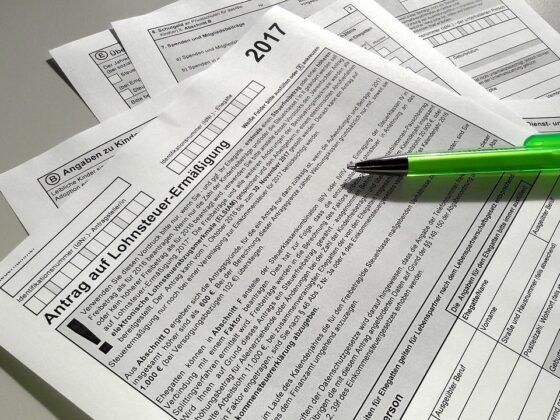Tax arrears, a term that sends shivers down the spines of many, refers to overdue tax payments that an individual or business owes to the government. Falling into tax arrears can happen for various reasons, from financial difficulties to simple oversight. Understanding the causes, consequences, and potential solutions can help individuals and businesses navigate these challenging waters more effectively.
Causes of Tax Arrears
- Financial Hardship: The most common cause of tax arrears is financial hardship. When individuals or businesses experience a sudden drop in income or an unexpected expense, they might prioritize immediate needs over tax payments.
- Mismanagement of Finances: Poor financial planning and mismanagement can lead to tax arrears. Without proper budgeting and financial oversight, it’s easy to miss tax deadlines or underpay taxes.
- Unawareness of Tax Obligations: Particularly for new business owners or individuals who have experienced significant life changes, being unaware of tax obligations can lead to arrears. This might include not understanding self-employment taxes or the implications of additional income streams.
- Errors in Tax Filings: Mistakes in tax filings, whether intentional or accidental, can result in underpayment. These errors might not be caught until an audit or notice from the tax authority.
- Procrastination: Delaying tax payments or ignoring tax notices due to procrastination can quickly lead to arrears. This is often driven by the anxiety or stress associated with dealing with taxes.
Consequences of Tax Arrears
The consequences of falling into tax arrears can be severe and long-lasting. They include:
- Interest and Penalties: Unpaid taxes accrue interest and penalties, increasing the overall debt. These additional costs can make it even more challenging to pay off the original tax amount.
- Credit Score Impact: Tax arrears can negatively impact an individual’s or business’s credit score, affecting their ability to secure loans or other forms of credit in the future.
- Legal Action: If tax arrears remain unpaid, the government can take legal action, including placing liens on property, garnishing wages, or seizing assets.
- Inability to Secure Financing: For businesses, tax arrears can make it difficult to secure financing, hampering growth and operations.
- Stress and Anxiety: The financial and legal pressure of tax arrears can lead to significant stress and anxiety, impacting an individual’s or business owner’s overall well-being.
Solutions for Managing Tax Arrears
- Payment Plans: Many tax authorities offer payment plans to help individuals and businesses pay off their tax arrears over time. These plans can be a lifeline for those who cannot afford to pay the full amount immediately.
- Seeking Professional Help: Hiring a tax professional can provide valuable guidance and assistance in managing tax arrears. They can help negotiate with tax authorities, identify potential deductions or credits, and create a repayment plan.
- Offer in Compromise: In some cases, taxpayers can negotiate an offer in compromise, where the tax authority agrees to accept a reduced amount as full payment of the tax debt.
- Financial Counseling: Seeking financial counseling can help individuals and businesses improve their financial management skills, preventing future tax arrears.
- Stay Informed: Keeping up-to-date with tax laws and regulations can help prevent unintentional tax arrears. Regularly reviewing financial statements and consulting with tax professionals can ensure compliance.
The Importance of Addressing Tax Arrears Promptly
Ignoring tax arrears can lead to escalating problems. It’s crucial to address the issue as soon as possible to minimize penalties and interest. Open communication with tax authorities and seeking professional help can lead to more manageable solutions and prevent severe consequences.
When Facing Tax Debt, Turn to J. David Tax Law
While this article focuses on tax arrears, it’s important to remember that tax debt can come in many forms. If you or someone you know is ever facing tax debt, consider reaching out to J. David Tax Law. Their experienced professionals can provide the guidance and support needed to navigate the complexities of tax debt, ensuring the best possible outcome for your financial situation.












